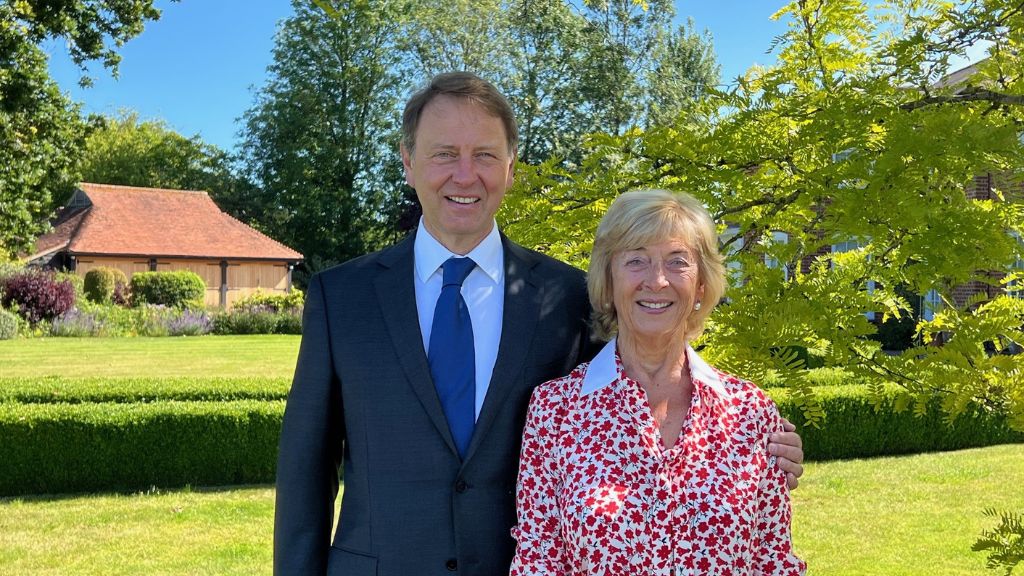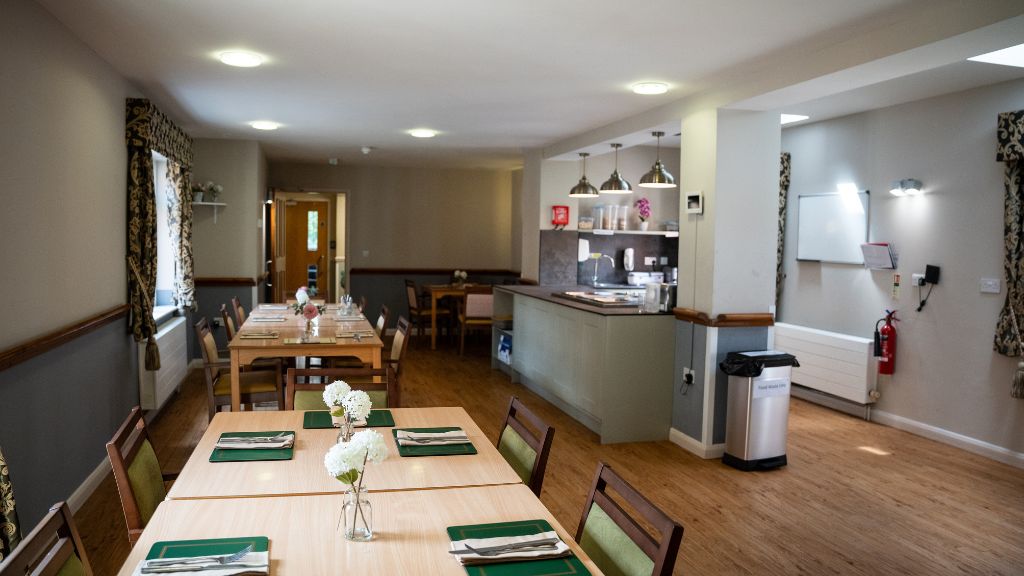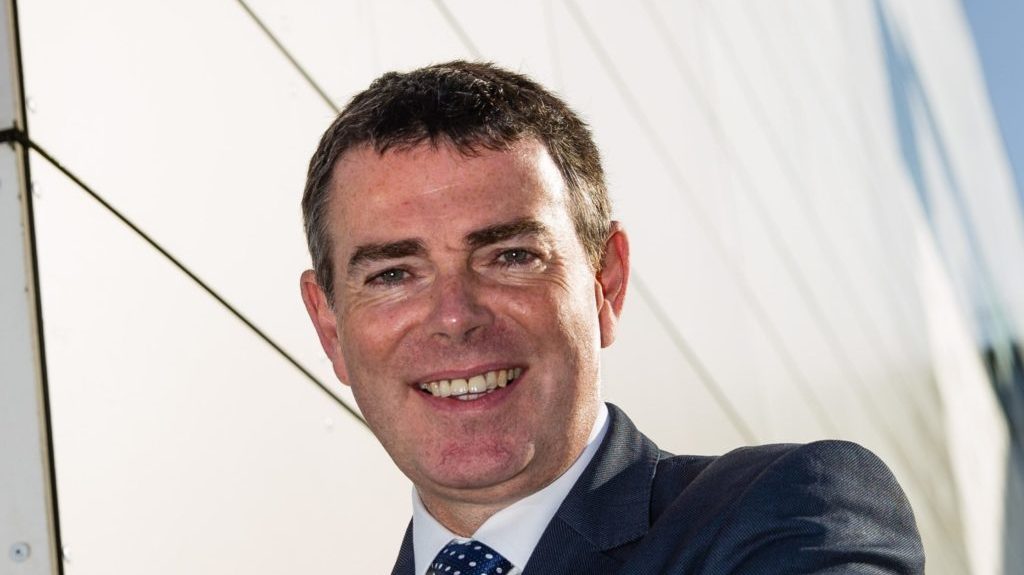Q&A: 30 years of Caring Homes, with founders Helena and Paul Jeffery
To mark 30 years of Caring Homes, founders, Helena Jeffery and her son, Paul, share insight and experiences, and reveal how their partnership has enabled care to thrive within a supportive and adaptable commercial framework.

What led you to open your first care home back in 1994?
Helena: Looking back at the start of our Caring Homes journey through to where we are today, it’s been an interesting, challenging and thoroughly enjoyable 30 years.
But my time in nursing and elderly care began much earlier – in 1969, to be exact – when I qualified as a State Registered Nurse at the Royal Berkshire Hospital in Reading. In those days we spent all of our time on the wards or in the training school. We covered all aspects of nursing, including medical, surgical, gynaecology, paediatric, theatre, A&E and care of the elderly.
In 1980 I went into the private sector as I felt I was able to give more time and dedication to the patients than I could in the NHS. During this time, I nursed several elderly patients and thought I might like to specialise in caring for the elderly, so I took a job as a nurse in a care home and later became manager at another home. From that point on, it was my dream to have my own care home and in 1994 my son Paul and I bought our first home in Braintree, Essex.
How did you balance funding your first home and creating a longer term commercial strategy with giving excellent care?
Paul: We had spent six years searching for the right opportunity before we discovered what we were looking for – a small residential home that needed refurbishment and a steadfast focus on care as we updated and improved it. To fund the purchase, we pooled equity from within our family and also received support from friends and business associates. I made my initial contribution by taking a personal loan from a building society.
Helena: To make a home successful the first thing you need is good people – a team who are motivated and don’t see it as just a job. It is an honour and a privilege for one human being to provide care for another – but to do that you also require good training. From the days of our very first team, to those who work in our homes today, I have always taken pride in the fact that that we give excellent training and as a result, our teams deliver outstanding care.
Paul: Care has always been our core priority, but our commercial strategy has always supported it. In the early years, we focused on acquiring homes that required substantial investment to meet the needs of residents with higher dependency requirements. While the idea of a nationwide portfolio was still in its early stages, we recognised the importance of developing robust management systems which would support a broader geographical base when we expanded further.
How have external factors impacted the care sector – and Caring Homes – over the years?
Paul: As we entered the new millennium, our strategy evolved in response to changes in the economic and political landscape. These are just three of the key events that shifted the landscape, and we adapted the group’s strategy accordingly:
- Election of the Labour government in 1997: Led by Tony Blair, this government increased the social security budget, which helped fund the adult social care sector.
- EU expansion in 2004: The entry of 10 new countries into the EU increased the availability of care workers in the UK, meeting the growing demand for care services in various settings.
- Financial crisis (2007-2012): The global financial crisis affected everyone, including our group, by making bank funding more challenging to secure. In addition, austerity measures were placed into local authority funding, which affected adult social care budgets.
Awareness of dementia and how it affects the lives of those living with it is greater than ever before. How has Caring Homes approached dementia care?
Helena: Regardless of external factors, or sometimes because of them, our approach has always been to strive to find ways of improving the care we offer in our homes. In 2015, we developed our own training programme for dementia called “Living in my World”, which was accredited by City and Guilds, and we won the Princess Royal Award the following year. The programme felt truly groundbreaking at the time, and it is still going strong.
Dementia care in general has improved enormously over the last 20 years, involving relatives much more through dementia cafes where experiences can be shared. At Caring Homes, we also provide training for our relatives, so they have greater knowledge and understanding, and feel supported. We recently launched our dementia hub which brings together all we’ve learnt over the years and makes information and inspiration accessible for anyone who needs to know more.
What are your reflections when looking back on the COVID-19 pandemic and the way Caring Homes responded?
Paul: It’s impossible to look back on our journey through the past 30 years without reflecting on the COVID-19 pandemic (2020-2022) and the severe impact it had on the care sector, particularly affecting vulnerable populations. In my opinion, the situation was exacerbated by poor government leadership, which is well-documented. We were fortunate that our group’s strong balance sheet and substantial reserves enabled us to fully meet the financial challenges posed by the pandemic.
Our homes were supported by a robust senior leadership team, including experienced and capable home managers. However, the real heroes were the dedicated teams at each home, who prioritised the residents’ well-being despite the known risks, even with mitigations in place. Frank Cummins, our clinical director, demonstrated outstanding professionalism and offered invaluable advice during this difficult time.
This experience, alongside our response to flux in the economic and political landscape over the years, shaped our strategies and priorities and we have become more resilient and adaptive as a result.
What key changes have you seen over the last 30 years – and what has remained constant?
Helena: Thirty years on, lots of things have changed in care homes and our staff and residents have benefited from progress in many areas – for example, we now deliver person centred care, and the use of technology enables us to spend more time with the residents. We have also seen huge advances in the design of homes, both internally and externally. Personally, I think one of the biggest improvements has been in food and we now offer more choices and special diets, with every meal centred around each resident’s individual need and preferences.
But when we are talking about change, surely the most significant has been in the regulation of care homes, something of a rollercoaster, starting with the Healthcare Act in 1984, the National Healthcare Commission in 2001, then the National Care Standards Commission, better known as CSCI, in 2007. Since 2009 we’ve had Care Quality Commission and today there are also numerous regulatory bodies to answer to, such as the Integrated Care Board, Health & Safety, Fire Service, Health Protection, Infection Control and more. I know how much extra pressure this all puts on our staff so we’re incredibly grateful for their commitment and understanding of what’s required.
However, one thing that hasn’t changed for me, apart from its title, is ‘Wellbeing’, which used to be called ‘Activities’. As long as 35 years ago when I was a home manager, I arranged for my residents to go out on a regular basis. We took them to the seaside for fish and chips, theatre, pub lunches and the circus. We held garden parties in the summer, arranged outings to the Norfolk Broads and to the world-renowned Christmas Spectacular at Thursford. We had therapists, schools and churches visiting the home and they all contributed to what is now known as the wellbeing of residents. Today, our commitment to wellbeing still plays a big part in helping us provide our residents with the opportunity to continue to live life to the full, which is at the heart of everything we do.
Is there a particular highlight or moment that stands out when looking back at the journey you’ve taken with Caring Homes?
Paul: A significant highlight was when Helena received the Dame Vera Lynn award and the Health Investor award, both recognising her substantial contributions to the sector. For me, despite countless milestones from my 30 years in the sector, the highlights that stand out most are my visits to the homes, where I meet the residents and the dedicated care teams, including all the ancillary employees who are essential to our operations.
Helena: When I think about my favourite moments from the past 30 years of Caring Homes there are many, but I think the best was when it all began – the purchase of our first care home and turning it around out of receivership into a home where residents received excellent care and were truly happy.
What’s behind the success and longevity of Caring Homes?
Paul: Ultimately, it’s about employing people who are like-minded and genuinely committed to providing high-quality care, which is at the heart of our profession. This is more of an art than an exact science, as we are dealing with human beings. Our success stems from the culture within our homes, which is led by the manager on a day-to-day basis for our residents. However, this culture is also cultivated by the board and permeates throughout the organisation.
There is no magic wand in our sector. It’s about recognising and valuing our employees, which helps us attract and retain the very best in every area of our homes and the company as a whole.
Helena: Those who have worked with me over the years will know my favourite catchphrase is, “Get the care right and the rest will follow”. I’m incredibly proud of everything we’ve achieved together at Caring Homes, and we couldn’t have done it without our people.
To all our teams, at all levels, I’d like to say: thank you for your dedication and commitment. You fully deserve our appreciation and admiration for the fantastic contribution you have made, and continue to make, towards the success story we are here to celebrate.



